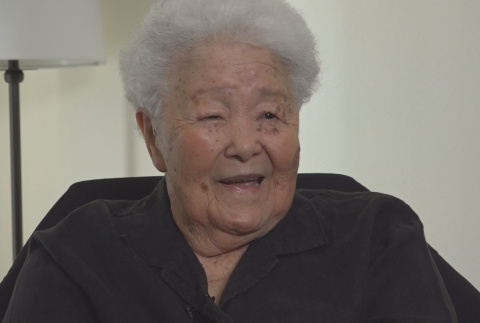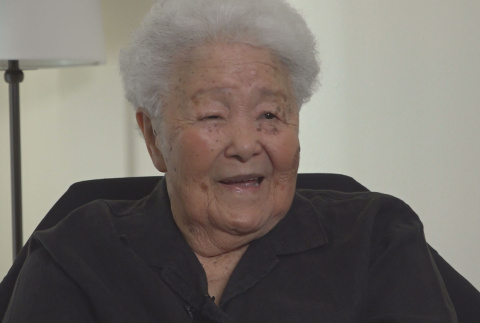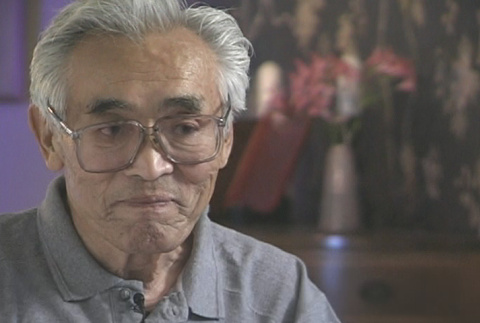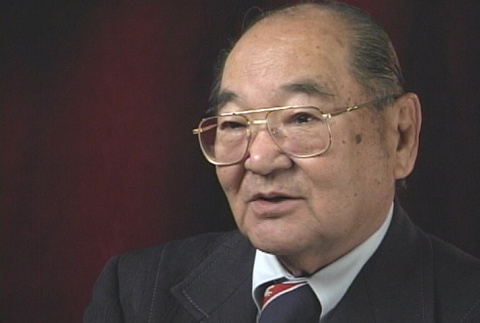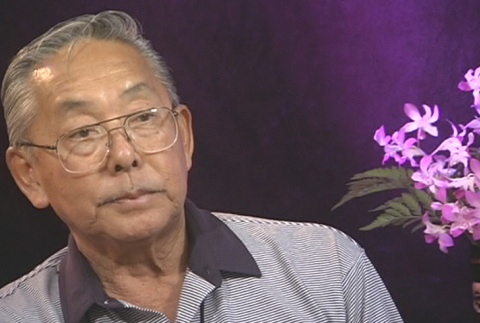442nd Regimental Combat Team
The 100th Infantry Battalion began as part of the Hawaii National Guard. On June 5, 1942, 1,432 men left Hawaii for training at Camp McCoy, Wisconsin, and later at Camp Shelby, Mississippi. The 100th shipped out to North Africa on August 23, 1943, and saw heavy action in Italy. Because of its heavy casualties and many honors, the 100th became known as the "Purple Heart Battalion." The 442nd Regimental Combat Team was initially formed in 1943 from Japanese American volunteers from Hawaii and the mainland. Perhaps not surprisingly, only about 1,250 Japanese Americans volunteered from the concentration camps. In Hawaii, where there was no mass removal, almost 10,000 volunteered. The 442nd arrived in Italy in June 1944 where the battle-tested 100th Infantry Battalion became its 1st Battalion. In seven major campaigns, the 442nd became the most decorated unit for its size and length of service; the unit suffered 9,476 casualties, more than 300 percent of its original strength.
World War II
(231)
Military service
(2806)
442nd Regimental Combat Team
(3011)
Related articles from the
Densho Encyclopedia :
442nd Regimental Combat Team,
Mark W. Clark,
Sadamitsu Neil Fujita,
Go for Broke! (film),
Stanley Hayami,
Daniel Inouye,
Mike Masaoka,
Kazuo Masuda,
Rescue of the Lost Battalion
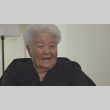
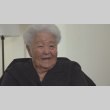
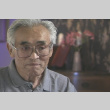
At the time this interview was taped, Mr. Watanabe was recovering from a recent series of cancer treatments.

At the time this interview was taped, Mr. Watanabe was recovering from a recent series of cancer treatments.

At the time this interview was taped, Mr. Watanabe was recovering from a recent series of cancer treatments.

At the time this interview was taped, Mr. Watanabe was recovering from a recent series of cancer treatments.

At the time this interview was taped, Mr. Watanabe was recovering from a recent series of cancer treatments.

At the time this interview was taped, Mr. Watanabe was recovering from a recent series of cancer treatments.

At the time this interview was taped, Mr. Watanabe was recovering from a recent series of cancer treatments.

At the time this interview was taped, Mr. Watanabe was recovering from a recent series of cancer treatments.

At the time this interview was taped, Mr. Watanabe was recovering from a recent series of cancer treatments.

At the time this interview was taped, Mr. Watanabe was recovering from a recent series of cancer treatments.

At the time this interview was taped, Mr. Watanabe was recovering from a recent series of cancer treatments.

At the time this interview was taped, Mr. Watanabe was recovering from a recent series of cancer treatments.

At the time this interview was taped, Mr. Watanabe was recovering from a recent series of cancer treatments.

At the time this interview was taped, Mr. Watanabe was recovering from a recent series of cancer treatments.

At the time this interview was taped, Mr. Watanabe was recovering from a recent series of cancer treatments.

At the time this interview was taped, Mr. Watanabe was recovering from a recent series of cancer treatments.

At the time this interview was taped, Mr. Watanabe was recovering from a recent series of cancer treatments.

At the time this interview was taped, Mr. Watanabe was recovering from a recent series of cancer treatments.
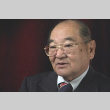
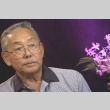
This interview was conducted at the 1998 Americans of Japanese Ancestry Veterans National Convention, held in Honolulu, Hawaii. Given the full conference schedule, interviews conducted at the reunion were shorter in length than typical Densho interviews and concentrated on a single topic, namely, the individual's military service during …

This interview was conducted at the 1998 Americans of Japanese Ancestry Veterans National Convention, held in Honolulu, Hawaii. Given the full conference schedule, interviews conducted at the reunion were shorter in length than typical Densho interviews and concentrated on a single topic, namely, the individual's military service during World War II.

This interview was conducted at the 1998 Americans of Japanese Ancestry Veterans National Convention, held in Honolulu, Hawaii. Given the full conference schedule, interviews conducted at the reunion were shorter in length than typical Densho interviews and concentrated on a single topic, namely, the individual's military service during World War II.

This interview was conducted at the 1998 Americans of Japanese Ancestry Veterans National Convention, held in Honolulu, Hawaii. Given the full conference schedule, interviews conducted at the reunion were shorter in length than typical Densho interviews and concentrated on a single topic, namely, the individual's military service during World War …
